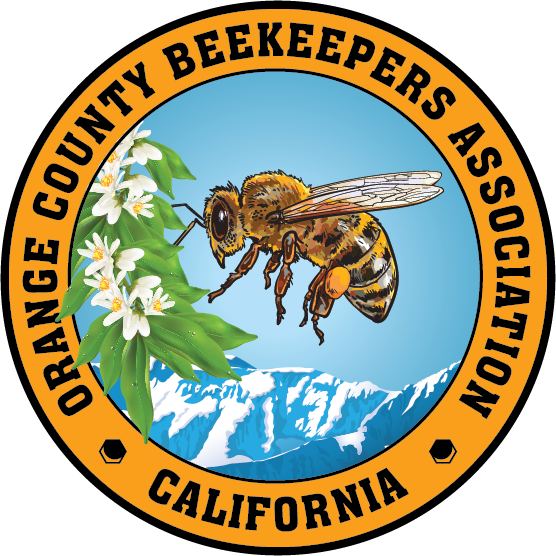Bees/Resources
Bees
Bees are some of the most fantastic creatures on earth. Not only do they provide us with honey, but also pollinate vast amounts of crops throughout the world. Did you know that about 1/3 of the food you eat depends on pollination, and bees are responsible for about 80% of that work load? Honeybees are the only pollinator that can be domestically kept on a large scale for this purpose. Millions of hives are transported across the country each year to different farms and orchards. Honeybees play a very important role in our ecosystem and economy.
How to act around Bees
Bees only sting when they are adequately stimulated to respond with defensive behavior. It is rare to be stung by a bee if you are out of the line of sight of the hive. Bees at flowers or water are completely uninterested in humans or livestock, and not the least bit aggressive. They are simply going about their business of gathering food and water for their colony. Leave them be and they will not bother you. A bee landing on you is not prone to sting. Train your mind to look before you swat. If it is a hone bee, she will usually fly off in a few seconds or you may gently flick her off.
On the other hand, bees will protect and defend their hives. Therefore, it I best to keep about 100 feet away from the actual apiary. Incoming or outgoing bees may inadvertently get caught in your hair, or the occasional over-exuberant guard bee may see you as an aggressor and try to drive you off. A bee that gets caught in your hair and starts emitting a loud buzz will sting you unless you immediately crush it with your fingers Never flip such a bee out of your hair, or it will likely sting you in the face! Pinch it quickly, cover the spot with your hand to trap the alarm pheromone and get away from the apiary at once!
What to do if you should get stung:
Life-threatening sting allergy is extremely rare; however, you should be aware of the possibility. IF YOU HAVE ANY DIFFICLUTIES BREATHING OR FEEL A TIGHTNING IN YOUR THROAT OR CHEST, CALL 911 OR GET TO A HOSPITAL AS QUICKLY AS POSSIBLE.
if you are stung by a honey bee there will be a stinger with an attached venom sack lodged in your skin. immediately remove the stinger by scratching it out with your finger nail. remove it quickly to reduce the amount of venom injected. a sting with generally hurt for only a minute or two, so try to relax. Swelling in the area of the sting is normal and can last a few hours or a day. Fingers and faces swell the most. A pressure bandage may help to reduce your body’s reaction to the sting.
When a bee stings, a scent is released with makes the area a potential target for more stings; get away from the hives. ASAP.
Feeding bees, feeds America
Changes in agricultural practices are making it harder and harder for beekeepers to find “safe” (i.e. pesticide free) pastures upon which their bees can forage when not actually pollinating specific crops. Bees are currently struggling with introduced parasites and viruses, and need all the help they can get. Providing bees with nutritious forage goes a long way toward helping them stay healthy.
As a landowner, you have the opportunity to provide pastureland to the benefit of honey bees (and their keepers). By working with a beekeeper, you can help them to maintain the critical supply of hone bees upon with California’s agricultural production is dependent. In a very real way you can help to make the world a better place.
Africanized Honey Bees and the U.S.
Africanized Honey Bees are not native to the U.S. but they have made their presence known in the states of California, Texas, Nevada, New Mexico, Arizona, Oklahoma, Louisiana, Alabama, Florida, and recently Tennessee. Theses honey bees continue to migrate north but at a much slower rate than when they first were released in South America. Geographical barriers and climate deter their expansion in other areas of the country.
Generally, Africanized bees are not a threat if you keep your distance from the hive and do not disturb the nest. It is recommended to remove any unwanted bee colonies nesting on private property and treat every bee hive as an Africanized one to ensure you are not harmed.
Below is the confirmed Africanized territories map (modeled after the USDA Africanized map) and some facts compiled together to illustrate the behaviors and differences of Africanized & European Honey Bees. Although, the physical appearances of these two bees are indistinguishable, you can see a drastic difference in their personality characteristics. http://www.propacificbee.com/infographic/AHB/infographic.php
Click Here to Download a Printable 100 Beekeeping FAQ Document
THE OC BEEKEEPERS ASSOCIATION The OCBA was formed in the 1970′s. Our membership is currently comprised of mostly small-scale beekeepers who are dedicated to keeping bees in the urban environment. The roots here in OC are agricultural, and we haven’t forgotten that. Copyright 2023 | Orange County, CA, USA |
